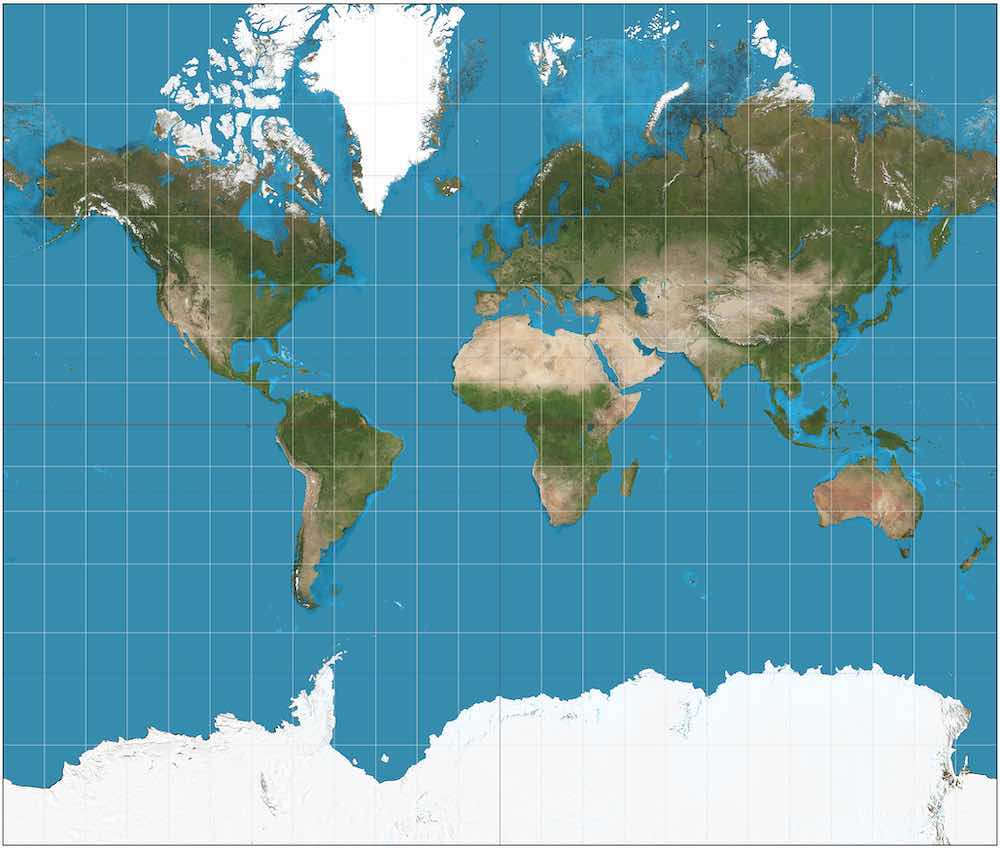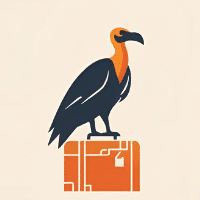So you want to move abroad? While it’s not rocket science, there’s certainly a lot to know before you take the leap. Moving to a new country can present numerous challenges, especially for those who are unprepared.
So, it’s best to be aware of the potential pitfalls before you spend time and money packing up your life. That’s not to say moving abroad can’t be an incredibly fulfilling life experience. Plenty of people thrive outside of their home countries and gain more perspective in the process.
You’ll expand your social circle, likely learn another language, and a whole new set of cultural customs. Before moving to a new country, here are 15 things to keep in mind:
Moving to a New Country – 1. Why?
One of the first things to evaluate before moving to a new country is your intention in doing so. Can you improve your quality of life by moving abroad? Is there more economic opportunity elsewhere? Are novelty and learning new cultures important to you?
There are plenty of good reasons to move abroad. However, it takes being honest with yourself about your intentions to determine whether it is a good idea or not. If you are trying to escape responsibilities in your home country and run away from your problems, they’re going to catch up with you sooner or later.
As Jon Kabat-Zinn famously wrote: Wherever You Go, There You Are. You can undoubtedly expand your horizons by moving, but don’t expect to completely change who you are and fix all of your problems by leaving your home country.
Moving to a New Country – 2. Where?

Some people are eager enough to leave their home countries that the specific destination doesn’t exactly matter. Others have a dream destination in mind and won’t settle for anything less.
Regardless, deciding where to live is a fundamental part of deciding to move to a new country. You’ll have to take stock of your specific wants.
If you’re a big city person, you may struggle to adapt to life in the Tuscan countryside. If a dynamic economy with job opportunities is important, you’ll obviously want to avoid smaller economies with weak labor markets.
Once you’ve decided where to move, it’s also important to evaluate which specific cities and neighborhoods fit your preferences.
Moving to a New Country – 3. Take Only the Essentials
If you’ve been relatively settled in your home country, you likely have a lot of stuff. You’re certainly not going to be able to take everything with you, so it’s worth paring down what you have.
Shipping your possessions is quite expensive and a hassle, so I would recommend taking only the things that you need. If starting over from scratch is difficult to square away, you may want to rethink your decision to move.
If you’re able to sell a lot of the inessential possessions you have, you’ll be able to be flexible about where you move to. It also comes with the benefit of a clearer head.
4. Challenges of Your Specific Destination
Before moving somewhere, I’d highly recommend visiting for a period of time that allows you to slow down and feel like a local. It’s easy to have on rose-tinted glasses when you visit somewhere for just a few days.
Once you spend a long enough time anywhere, the shine tends to wear off. You’ll see what it truly means to live somewhere and take the good with the bad.
However, you’ll want to make sure the bad isn’t going to be a huge dealbreaker for you. If you’re looking for tranquility, somewhere like Mexico City isn’t going to be the place for you. If you want warm weather year-round, you may not be able to handle a Scandinavian winter.
Make sure you research the challenges of living in your chosen destination before you move there. It will give you an idea of what to expect.
5. The Local Language
Knowing how to speak the local language is one of the most important facets of moving to a new country. If you’re unable to communicate effectively, it will severely limit who you can interact with
Start taking classes and learning phrases before you move somewhere to make your transition easier. It will be incredibly difficult to connect to a place and its people in a deep way without understanding what’s going on around you.
If integrating into the culture is at all important to you, do your best to learn the local language wherever you end up moving.
6. Transportation

Before going abroad, you need to know how you can get around. If you’re moving from the US to a major European city, it’s almost certain that you won’t need a car.
Research how fast and reliable intercity transportation is and understand where the nearest major airports are. This is especially important if you are going to be traveling frequently and/or making trips back to your home country.
If you don’t have a car, you’re going to want to live in a city/neighborhood with strong public transit or walking/bike infrastructure so you can have a good quality of life.
7. Visa Requirements
Don’t overlook what kind of visa you need to move to another country. European citizens, like myself, are incredibly lucky in the sense that we can move to any EU country without needing a visa. You’d just have to register your residence after 90 days in a new country.
However, that’s not a luxury most people have. So, research the types of visas that you qualify for. Some places, like Mexico, have lax requirements where you can continue to enter on a tourist visa. However, in stricter countries, you may need a work visa, investor visa, or digital nomad visa to stay.
8. Support System/Lack Of
Do you know anyone in the place where you are moving? If not, are you prepared to deal with the potential loneliness that comes along with moving to a new place?
There are undoubtedly places where it is easier to make friends than others, influenced by social opportunity and cultural openness. However, there are a lot of places that feel insular, where it takes time for people to trust an outsider.
It can be very helpful to know even one person in the place you’re moving. It’s even better if they’re from your home country, as they know the social challenges of moving to a new place firsthand. They’ll likely be open to introducing you to their friends so you can adjust more easily.
9. Budget/Cost of Living
It’s paramount to know what you can expect to spend every month on housing, food, transportation, etc. Otherwise, you may be in for some unpleasant surprises when you move.
If you’re not legally able to work in the place where you are moving, you’ll need to make sure you have enough saved up for your stay, especially if it is long-term.
Obviously, you won’t know exactly what you’ll be spending until you actually live somewhere. Still, having an idea will allow you to target specific countries, cities, and neighborhoods that are within your budget.
10. Logistical Concerns
You absolutely have to think about logistics before moving to a new country. With two-factor authentication, plenty of websites will send a text to your phone for you to be able to access your accounts. If you change your phone number, you’re at risk of losing access, at least temporarily.
You’ll also want to ensure your credit card companies know you’ll be abroad, so they don’t block your transactions. Plus, there are certain countries where you need a bank account to legally rent an apartment. So, you’ll want to figure out how to open one.
Also, make sure you have a P.O. Box set up to receive your mail in your home country or have it forwarded to a trusted friend/family member.
It’s also worth getting a VPN so you can still access the websites and streaming services that you use at home.
11. Healthcare
This is an incredibly important one, especially if you have specific health challenges. You should research what your options are before you’re in a new country and end up needing to go to the doctor. Travel health insurance may be sufficient in some cases.
If you are working in the EU, you’ll generally be covered by the country’s health system that you’re in. In some countries, especially where medical care is relatively cheap, it’ll be fine to pay out of pocket. Just do your due diligence before you end up in a bind.
12. Distance From Home
If you are going to want to visit family and friends frequently, it’s going to be difficult to be located on the opposite side of the globe from your home country. Responsibilities, like taking care of aging parents, can mean it’s best to stay relatively close to home.
Take a look at how often you want to/have to go home and check the average flight prices to see if it makes logistical and financial sense to move somewhere. Certainly, some people are estranged from their family and would prefer to stay far away, but plenty still have close relationships to maintain.
13. Taxes

If you are an American citizen, you are taxed on your worldwide income, no matter where your residence is. Sure, there’s the Foreign Earned Income Exclusion for those who live outside of the US at least 330 days of the year, but that doesn’t reduce self-employment income.
So, before you move elsewhere, understand what the tax implications are and where you need to pay taxes. If you’re an American citizen, it will usually be in the US and the country you relocate to.
Moving to a New Country – 14. Cultural Differences
Once the initial shine wears off, there will likely be culture shocks when you move to a country. What you find to be normal in your home country may be completely rude in your new country, and vice versa.
Speaking from experience, it can often be the little things that irritate me. Personal space is much less of a concern down in Mexico than in the US. When the Metro is crowded, people push their way on, and it’s not something anyone seems to think twice about.
Pedestrians almost always yield to cars instead of the other way around. Vendors will yell at 8:00 am, even on weekends, to sell things, and you’ll be woken up if you’re not wearing earplugs. These are small things, but they do take some adjusting to.
So, don’t move to a new country expecting people to cater to your specific needs. Cultural differences exist, and you’ll have to accept them even if you don’t agree with all of them.
Moving to a New Country – 15. Adaptability to Change/Being Open
This one follows from the last one. To successfully move to a new country, you’ll have to be adaptable to change and take things in stride. You’re going to make mistakes with the language and will make cultural faux pas here and there.
It’s not the end of the world, and it’s all part of learning to live in a new country. Some things/products you’re used to at home might not be available in the country you move to, and you’ll have to accept that.
If you’re not open to new experiences, cultures, and people, it’s worth reconsidering your move. Moving to a new country can be one of the most rewarding life experiences you can have if you’re open to the initial discomfort and put yourself out there without getting too discouraged.
